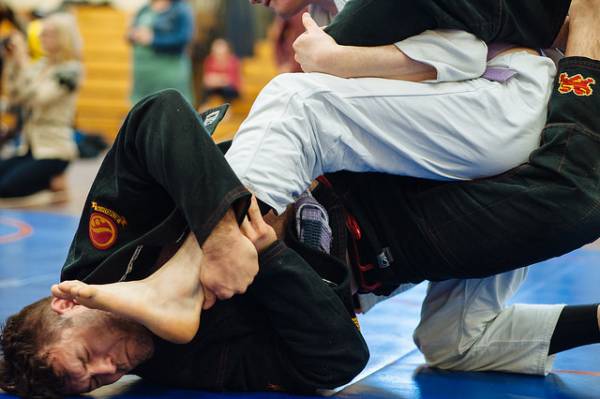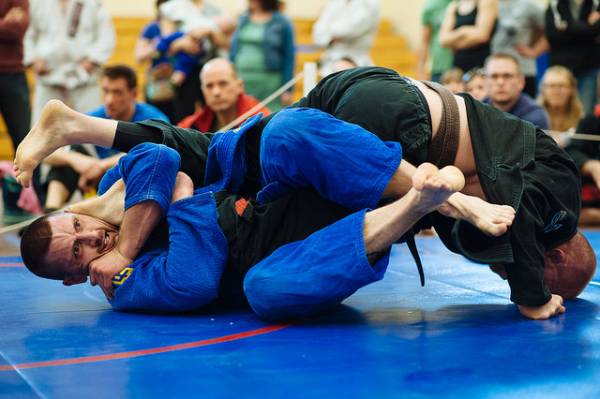It’s Tuesday morning. You wake up and don’t feel right. It could be brain fog or you’re just moving a little slow. Your joints are bothering you a little more than usual. But yesterday seemed like a normal training day. So, the question that goes through everyone’s head is, “Why am I feeling this way when yesterday was just a regular day?”
Yesterday may have been a normal day, but it’s not yesterday that is the problem. It’s the days and possibly weeks leading up to Tuesday morning that are the issue. If you are like most Brazilian jiu jitsu practitioners, it is hard for you to stay off the mat. But sometimes staying off the mat is what you need.
Frequently Overlooked Signs of Overtraining
Exercise is a stress on the body. It is normally viewed as a good stress. A small amount of stress from exercise is fine. Chronic stress from over-exercising is not.
There are many BJJ practitioners who train seven days a week, and sometimes multiple times a day. But just because you see a high-level competitor training a certain way does not mean it’s good for you. Everyone is different. What works well for one person may break someone else down.
The goal is to find out how much training you can handle and make sure you never cross that line. Below are some signs to look out for when you think you have pushed too far.
Mood
A lot of people do not make the connection between their mental state and training. During periods of extreme stress, your mood will change. You may feel depressed or grumpy even though everything in your life is going well.
what to do: Pay attention to your mood. Keep a journal and write down how you feel on your off days and the days after a hard training session. You may be able to pick up some patterns. Any time your mood varies from your regular patterns could be a sign you need to take a step back.
Energy
Train too frequently or with too much intensity results in a loss of energy. When you have pushed more than you should, your energy is going to be low. Some people experience a heavy leg feeling or they notice they get winded quickly doing everyday tasks like going up stairs.
What to do: If you notice a big shift in your energy levels, it’s a good sign you need to cut back on your training volume or intensity.

Performance
When the body is not recovered from your previous sessions, then performance is going to suffer. Reaction time is going to be slow. Strength will be less than usual. When you roll, you just feel off. If you are doing any type of strength training you will notice weights feel heavier than usual or you’re unable to complete a set you normally do not struggle with.
What to do: If you’re in the middle of weight training, simply stop or reduce the weights you are lifting. During a BJJ session, it may not be possible to just leave. Instead, cut back on your training intensity. Do technique and call it a day. If you roll, select partners who will go at your pace.
Pain
After exercise the body is inflamed. Inflammation is not always a bad thing. You need some inflammation, but too much inflammation is harmful. When we are inflamed things hurt.
On the days after you pushed a little too hard, your joints are going to feel achy. Your body may feel tight and have a decreased range of motion in areas you had no problems with previously. Pain is a lagging indicator. That means, by the time you finally feel pain the damage is already done.
What to do: When your car is broken, you don’t drive it faster. When you feel pain, stop training. It’s not worth pushing to the point of injury. It’s best to take a day or two off and see if the pain goes away. Supplementing with fish oil and turmeric will aid in reducing inflammation. When you start to feel better, then you can return to the mats.

What to Do About It
The best treatment is prevention. The first line of defense is to not work yourself to a state of being over trained. Train hard, but stay on the safe side of the line. Push just enough without going over. Leave the gym feeling like you worked hard, but not feeling over worked. It’s when you leave the gym thinking you pushed too hard that problems happen.
If you find yourself crossing the line, you need to do the following:
- Take at least one day off. Some people may need more, but start with one day off and see if you are feeling any better. Your only job on that day is to eat, hydrate, and rest. Getting some good nutrition and water in your body is going to help the repair process.
- Manage sleep and stress. If you are not sleeping properly or are stressed out from work, then your recovery is going to suffer. Get some good quality sleep. On the days you do not sleep well or are stressed from work, you should train lightly or not at all.
- Eat to match your goals. If you are training hard, but eating like a bird, then you are going to crash and burn. You may get away with it for a little while, but once it catches up with you it’s going to be a bad situation. Eat to match your training volume. Remember BJJ is about performance, not about a certain look. Eat enough to fuel your performance.
- Create a recovery habit. Find a routine or practice that works for you. Some people like to foam roll. Others like to do mobility work with compression bands. Anything is better than nothing. Find something that you can stick to and have fun with it.
Conclusion
Getting better at BJJ comes down to one thing – being able to train consistently for a long period of time. You don’t become a world champion overnight. It takes years. Unfortunately, the way some people train, they will not be around long enough to reach their potential. Train optimally and you will be able to stay on the mats for a long time.
Photos courtesy of David Brown Photography.






